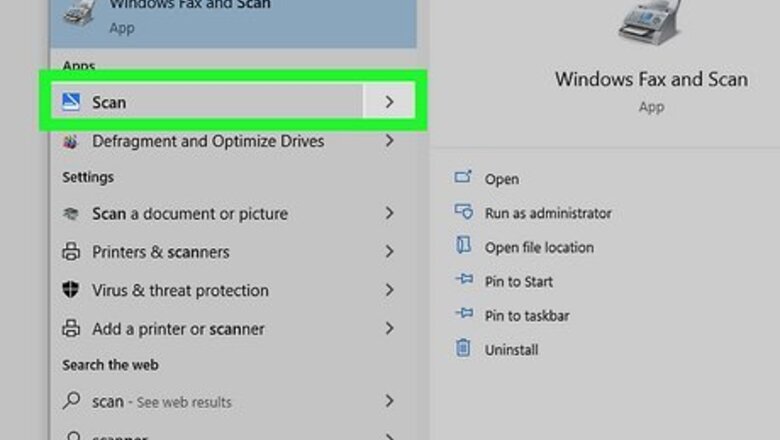
views
- For Windows, download Windows Scan. Prepare your scan, then click the scan icon.
- When using iOS, open the Notes app. Tap the camera icon, then tap "Scan Documents". Point your camera at the document to scan.
- On Android, open the Google Drive app. Tap "+", then "Scan". Point your camera at the document to scan.
Using Windows Scan
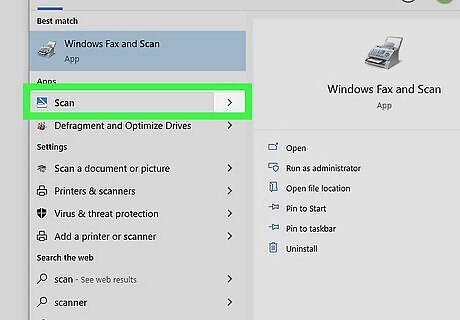
Open the Windows Scan app. This looks like a white scanner with a blue background. If you don't have Windows Scan, you'll need to download it from the Microsoft Store.
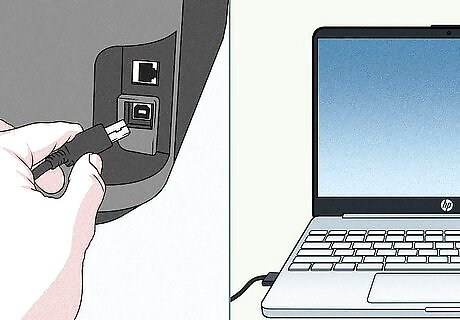
Connect your printer to your computer. Make sure the printer is plugged in and turned on. Your printer must have a built-in scanner to scan documents.
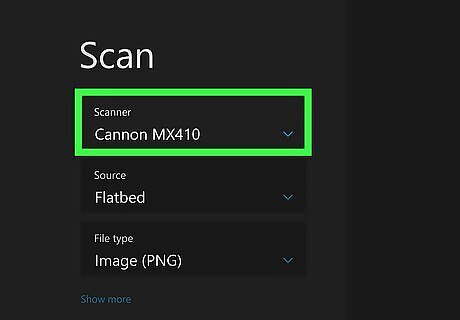
On Windows Scan, select your scanner. If you have more than one printer connected to your computer, you'll need to click the Scanner field and select the printer you want to use. If you don't see your scanner, navigate to Windows Settings → Devices → Printers & Scanners → Add a printer or scanner. Wait for your device to find nearby printers, then click Add device.
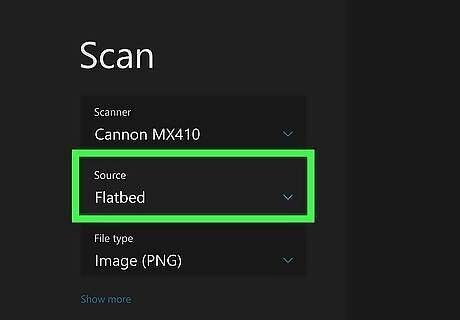
Select the source. Click the source field to choose between Flatbed or Feeder. When using the feeder, be sure you have selected the feeder option. This will let you scan multiple pages at once. If you're using the flatbed, be sure to select the flatbed option. This will only let you scan one document at a time.
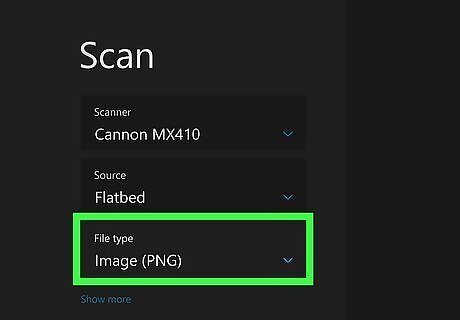
Select your file type. You can choose between JPEG, PNG, TIFF, Bitmap, OPENXPS, XPS, or PDF. When scanning anything other than a photo, it's best to select PDF.
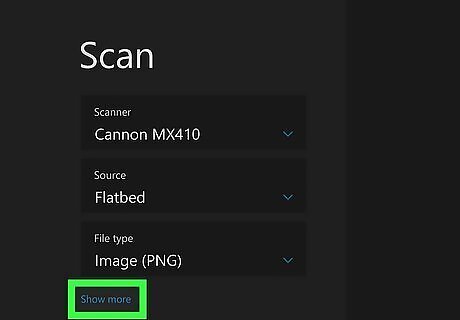
Click Show more to adjust additional settings. Click Resolution to change your resolution (DPI). You can select between 150, 300, or 600. If you have a document with lots of small details, such as an image, select a higher DPI. This may increase your scan time, but the details of your scan will be much clearer. If you're scanning a simple black-and-white document, a lower DPI setting will work fine. Change the destination folder by clicking Save file to. Use the File Explorer to select a new save location.
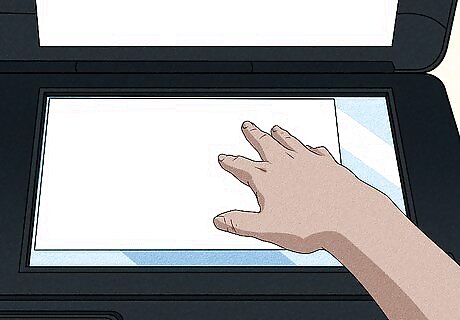
Place a document face-down in your scanner. If you're using the feeder, make sure they're in the correct order.
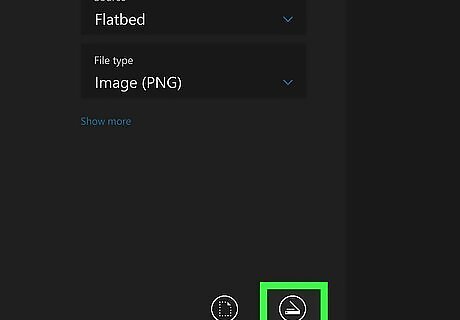
On Windows Scan, click the scan icon. This is the icon of the open scanner, on the bottom of the scan options. Your printer will begin scanning the document. When your scan is finished, you'll see a pop-up notification.
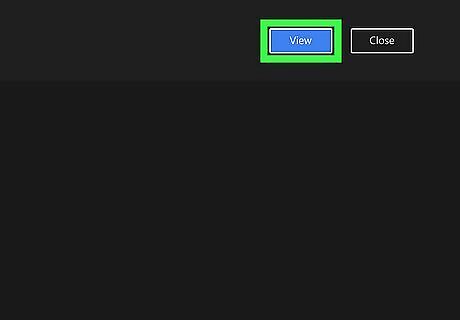
Click View to view your scan. You can also open the destination folder to find your scans. This may be My Scans or Pictures. If needed, you can email the scan.
Using Mac
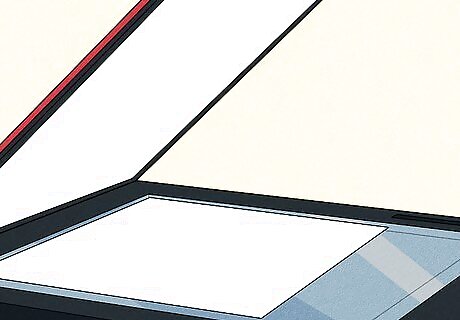
Place a document face-down in your scanner. You'll also want to make sure that your scanner is on and connected to your computer before proceeding.
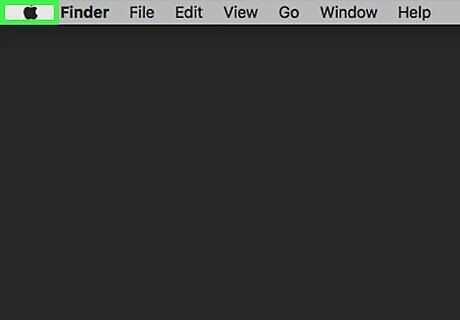
Open the Apple menu Mac Apple. Click the Apple logo in the top-left corner of the screen. A drop-down menu will appear.
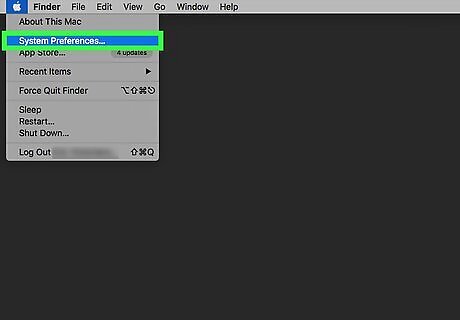
Click System Preferences…. It's at the top of the drop-down menu.
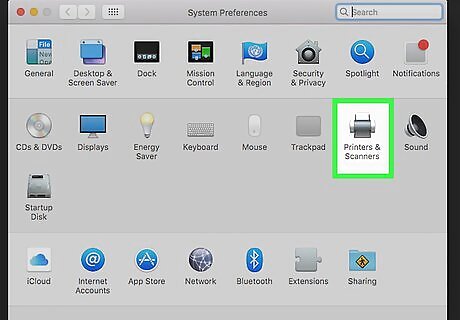
Click Printers & Scanners. This printer-shaped icon is on the right side of the System Preferences window.
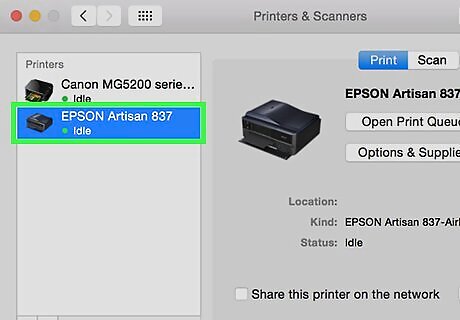
Select your scanner. Click your scanner's (or printer's) name in the left-hand column. If you don't see it, click the + in the lower-left side of the screen. Select your printer and click Add.
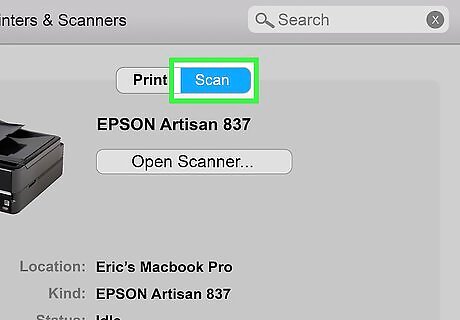
Click the Scan tab. It's at the top of the window.
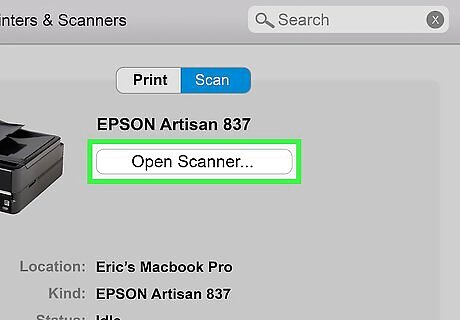
Click Open Scanner…. You'll find this near the top of the Scan tab window.
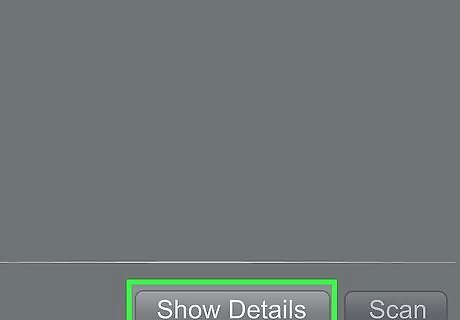
Click Show Details. It's in the lower-right side of the window.
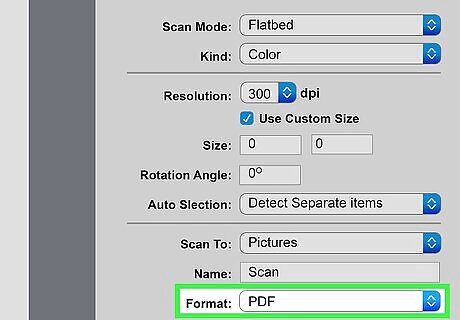
Select a file type. Click the "Format" drop-down box, then click a file type (e.g., PDF or JPEG) that you want to use to save your file. When scanning anything other than a photo, it's best to select PDF.
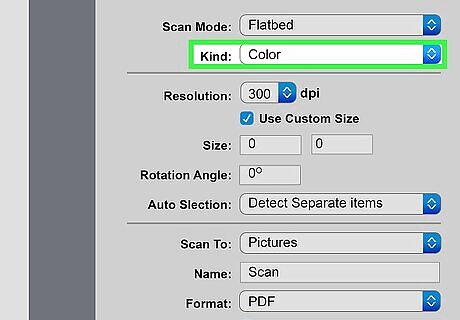
Decide on a color. Click the "Kind" drop-down box at the top of the page, then select a color option (e.g., Black and White).
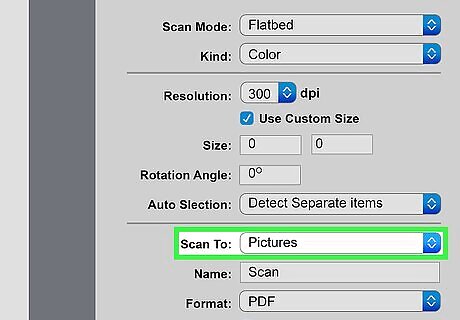
Select a storage location. Click the "Save To" drop-down box, then click a folder in which you want to save your scanned document (e.g., Desktop).
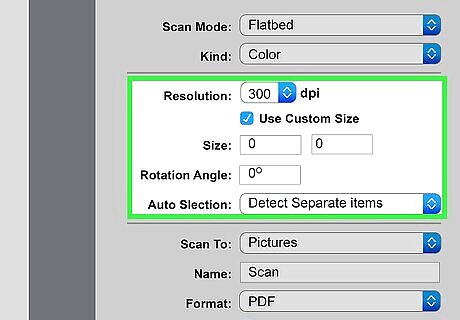
Change other options on the page. Depending on the type of file that you're scanning, you may want to change the "Resolution" value or the "Orientation" value here.
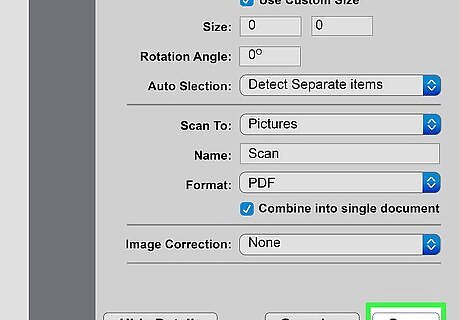
Click Scan. It's in the bottom-right corner of the window. Your document will begin scanning into your computer. When it finishes, you'll be able to find it in your selected save location.
Using iPhone or iPad
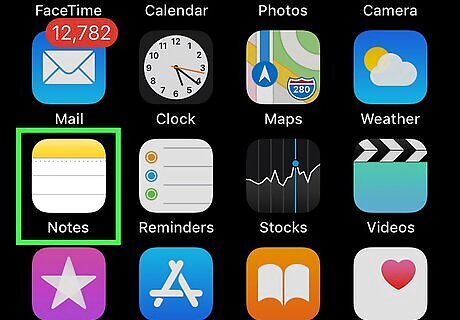
Open the Notes iPhone Notes App app. This is the icon with the yellow notepad. If it's not already installed, you can install it from the App Store.
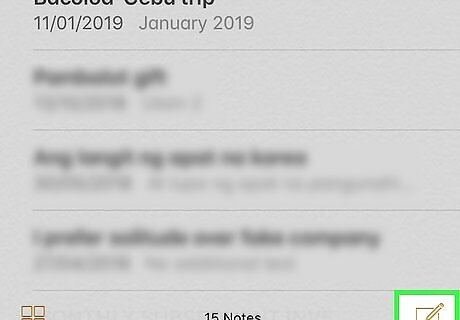
Create a new note. You can do this by clicking the pencil and note icon located at the top right or bottom right corner, depending on your iOS version.
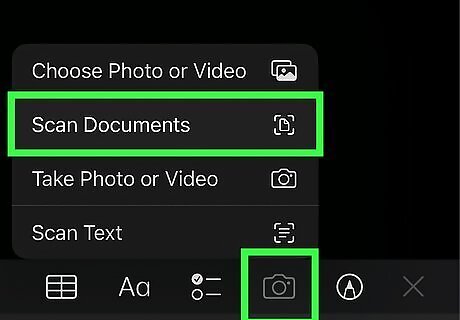
Tap the camera icon and select Scan Documents. This will open your camera.
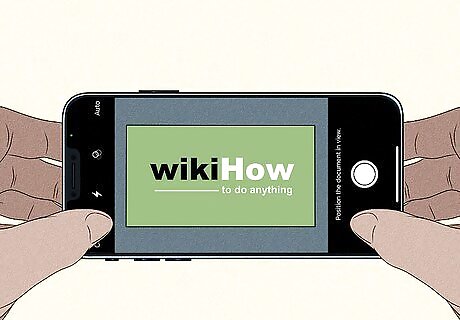
Position your camera over the document you want to scan. You'll be able to compile multiple documents in the same PDF file as long as they are scanned in the same session. For best quality, scan your documents in a well-lit area and with steady hands. The camera will automatically snap a photo when the scan has been detected. You can manually press the white camera button to snap a photo. If you need to retake a scan, click the scanned documents in the bottom left corner. Click Retake on the top right of the scan you want to retake.
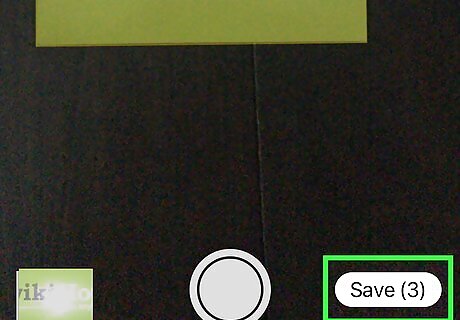
When finished, click Save. If you scanned more than one document, there will be a number in parenthesis indicating the number of successful scans. The scans will automatically be in PDF format. If you scanned multiple documents in the same session, they will be compiled together in the same PDF file.
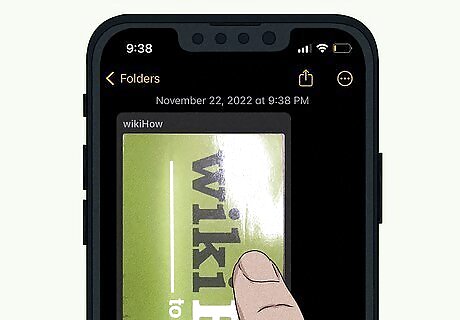
Click the scanned document in the Notes page. This will bring up the document options. Make sure you've selected the scanned document, not the Note. It will say Scanned Document(s) at the top.
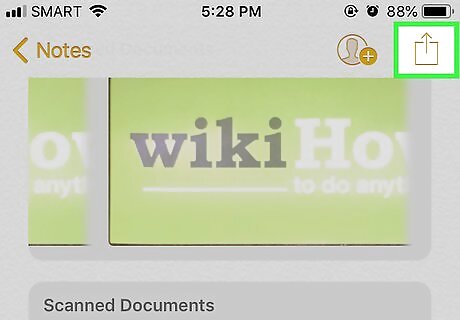
Tap iPhone Yellow Share. It's in the top-right corner of the screen.
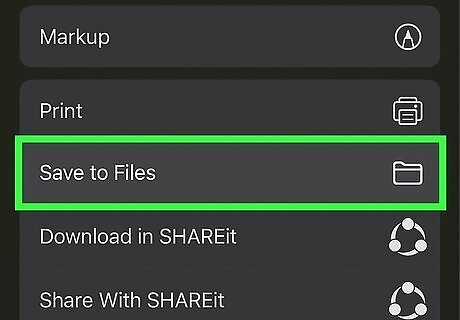
Save your scanned document. You can choose Save to Files, Save to Dropbox, Mail, and more. Tap OK to save or send your scan.
Using an Android
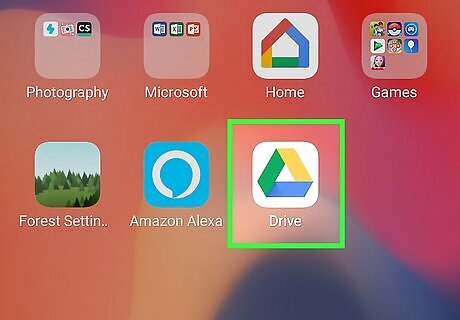
Open the Google Drive app on your Android device. You'll need to login to your Google account to use Google Drive. If you don't have an account, you can create an account. If needed, download Google Drive from the Google Play Store.
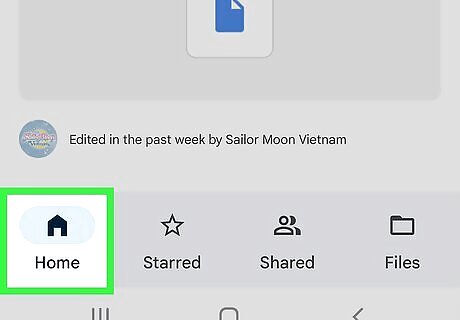
Navigate to your homepage. By default, the app should open on this page. If not, tap Home on the bottom left corner. This is where you can add files or store pictures.
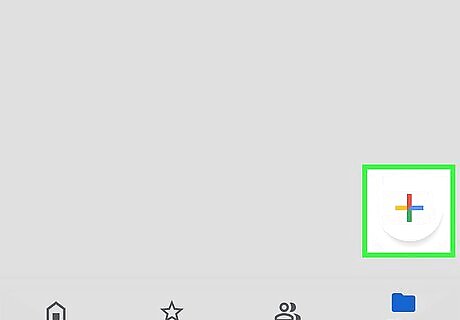
Tap +. It's in the bottom-right corner of the screen. A pop-up menu will appear.
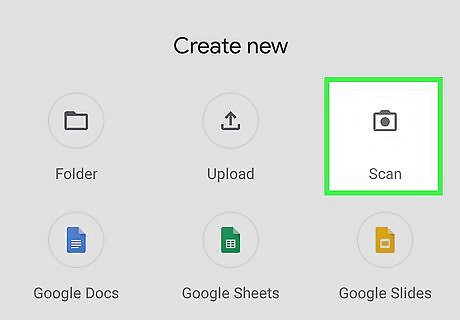
Tap Scan. This camera-shaped icon is in the pop-up menu. Your device's camera will open. If you're using the camera for the first time, you may receive a pop-up window. Select either While using the app or Only this time. Do not select Don't allow since you need camera permission to scan documents from your phone.
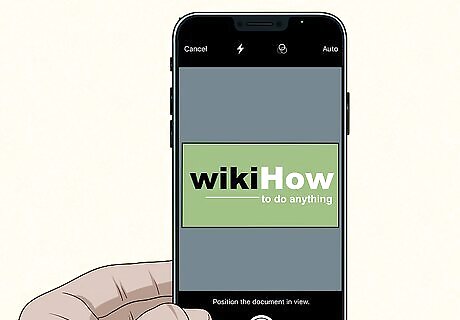
Point your phone's camera at a document. The document should be centered in the middle of the screen. Make sure that your document is flat and completely on-screen before proceeding.
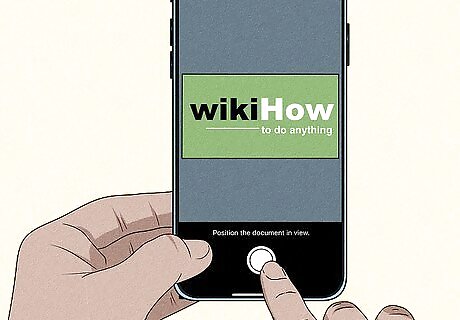
Tap the "Capture" button. It's a blue-and-white circle at the bottom of the screen. This will scan your document. You can choose to Retry if you want to take the photo again. Otherwise, click OK. Google Drive will automatically convert your picture into a scan. If there is white space, it will automatically locate the borders of your document.
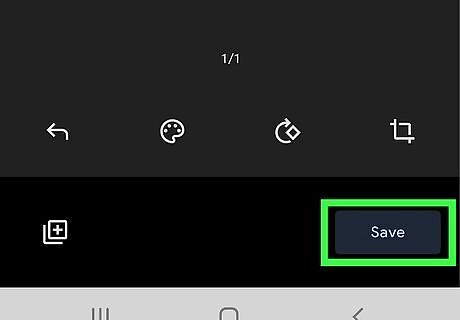
Tap Save. This is in the bottom-right corner of the screen. Doing so saves your scan. You can also crop your scan by tapping and dragging any of the spheres located around the edge of the scan. To add more pages to the PDF, tap + and then scan another item.
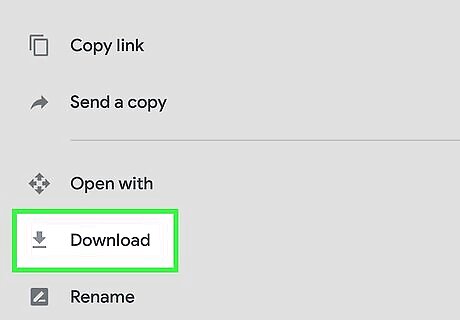
Save your scanned document onto your phone. Tap the three dots icon in the top-right corner, then tap Download. You can also tap Send a copy if you want to email the scan.














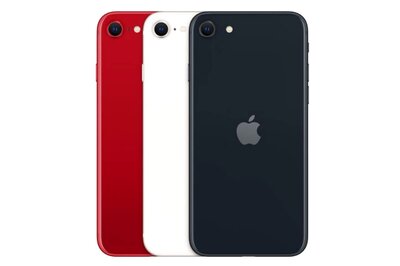





Comments
0 comment